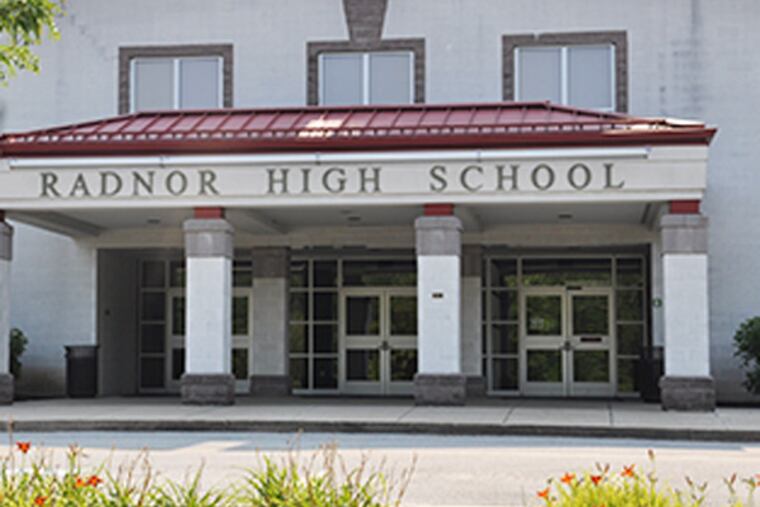
The movement to hit the snooze button and let sleep-deprived teenagers get a later start on their school days is catching fire in Philadelphia’s western suburbs.
This week, school boards in two Main Line school districts — Radnor and Tredyffrin/Easttown — approved schedules for the 2019-20 academic year that start the school day as much as 55 minutes later for some kids, in response to medical research that early start times are out of sync with teen body clocks.
“It came down to logistics, but went back to research as well. When does adolescent circadian rhythm [a change in biological sleep patterns] kick in and when does it have an impact?” Radnor superintendent Kenneth Bachelor said, adding that this fall’s 8:30 a.m. high school start time will become the latest in the region.
What’s happening:
The Tredyffrin/Easttown school board voted by 7-2 Monday night, after months of studying the issue, to push back the school day for all students starting this fall. The new times will be 7:50 a.m. to 2:50 p.m. for high schoolers (currently 7:20 a.m. to 2:20 p.m.); 8:27 a.m. to 3:10 p.m. for middle schoolers (now 7:50 a.m. to 2:33); and 9:10 a.m. to 3:45 p.m. for grade schoolers (8:45 a.m. to 3:20 p.m.)
On Tuesday, the Radnor school board voted, also 7-2, for its 2019-20 schedule, with a big move back for high schools and a minor one for middle schoolers. Its new start and end times are 8:30 a.m. to 3:10 p.m. at Radnor High School (currently 7:35 a.m. to 2:27 p.m.), 7:50 a.m. to 2:40 p.m. at the middle school (now 8 a.m. to 3 p.m.), and 9:07 a.m. to 3:40 p.m. at its three elementary schools (now 9 a.m. to 3:30 p.m.)
In both school districts, the later start times were widely supported by school officials, parents, students, and experts on sleep and psychology such as Judith Owens, an internationally known pediatric sleep expert who was brought to Radnor twice to speak on the topic.
But the issue proved not as popular with teachers in Tredyffrin/Easttown, who were accustomed to the current schedule and often liked an earlier end to their school day, according to a school official. And for administrators, changing school bus and cafeteria times and dealing with other districts on sports schedules proved a thorny logistical puzzle while also posing additional costs in a time when districts are watching their pennies.
“I think change is hard for everyone, even when it’s a good change,” said Wendy Towle, director of curriculum, instruction, and staff at Tredyffrin/Easttown. She said changing bus schedules in the sprawling Chester County district is likely to cost as much as $600,000. Radnor didn’t have an estimate but expects to hire two more bus drivers, at a cost of $120,000, and possibly buy new buses.
Why is this happening now?
Since 2014, a series of leading medical groups including the American Academy of Pediatrics, the U.S. Centers for Disease Control and Prevention, and the American Medical Association have urged starting schools for teens and adolescents at 8:30 a.m. or later because of the changes in their natural sleep rhythms. Many U.S. teens, researchers found, are getting less than the eight hours of sleep they need, and that leads to problems ranging from increased depression to more car crashes.
“I think everybody, even those board members who dissented in their vote, agrees that providing opportunities for adolescents to have more and better sleep is a good thing,” Owens said.
Who else is doing this?
In 2017, Unionville-Chadds Ford became the region’s first school district to experiment with the later start time, pushing back the beginning of high school and middle school in the Chester County district, which includes a slice of Delaware County, by 25 minutes. Although the plan triggered some initial concerns from teachers, sports boosters, and other community groups, school officials this winter said the move has proved to be a popular success story.
The Phoenixville Area School District voted in January to move back starting times for both high schools and middle schools to 8:05 a.m., beginning this fall.
The later-start-time movement has also sparked interest among lawmakers in both Harrisburg and Trenton, where panel recommendations and new proposals are pending, which could bring more area districts onto the bandwagon.